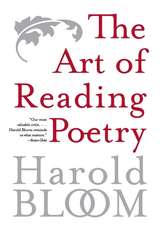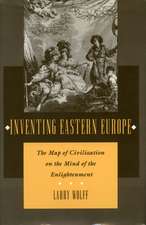Metaphors We Live By
Autor Professor George Lakoff, Mark Johnsonen Limba Engleză Paperback – 15 apr 2003
In this updated edition of Lakoff and Johnson's influential book, the authors supply an afterword surveying how their theory of metaphor has developed within the cognitive sciences to become central to the contemporary understanding of how we think and how we express our thoughts in language.
Preț: 104.03 lei
18.39€ • 21.68$ • 16.06£
Carte disponibilă
Livrare economică 19 martie-02 aprilie
Livrare express 04-10 martie pentru 59.72 lei
Specificații
ISBN-10: 0226468011
Pagini: 256
Dimensiuni: 140 x 216 x 25 mm
Greutate: 0.4 kg
Ediția:Revised
Editura: University of Chicago Press
Colecția University of Chicago Press
Locul publicării:United States
Public țintă
Academic/professional/technical: Undergraduate. Academic/professional/technical: Postgraduate. Academic/professional/technical: Research and professionalNotă biografică
Cuprins
Preface
Acknowledgments
1. Concepts We Live By
2. The Systematicity of Metaphorical Concepts
3. Metaphorical Systematicity: Highlighting and Hiding
4. Orientational Metaphors
5. Metaphor and Cultural Coherence
6. Ontological Metaphors
7. Personification
8. Metonymy
9. Challenges to Metaphorical Coherence
10. Some Further Examples
11. The Partial Nature of Metaphorical Structuring
12. How Is Our Conceptual System Grounded?
13. The Grounding of Structural Metaphors
14. Causation: Partly Emergent and Partly Metaphorical
15. The Coherent Structuring of Experience
16. Metaphorical Coherence
17. Complex Coherences across Metaphors
18. Some Consequences for Theories of Conceptual Structure
19. Definition and Understanding
20. How Metaphor Can Give Meaning to Form
21. New Meaning
22. The Creation of Similarity
23. Metaphor, Truth, and Action
24. Truth
25. The Myths of Objectivism and Subjectivism
26. The Myth of Objectivism in Western Philosophy and Linguistics
27. How Metaphor Reveals the Limitations of the Myth of Objectivism
28. Some Inadequacies of the Myth of Subjectivism
29. The Experientialist Alternative: Giving New Meaning to the Old Myths
30. Understanding
Afterword
References
Descriere
In this updated edition of Lakoff and Johnson's influential book, the authors supply an afterword surveying how their theory of metaphor has developed within the cognitive sciences to become central to the contemporary understanding of how we think and how we express our thoughts in language.

















